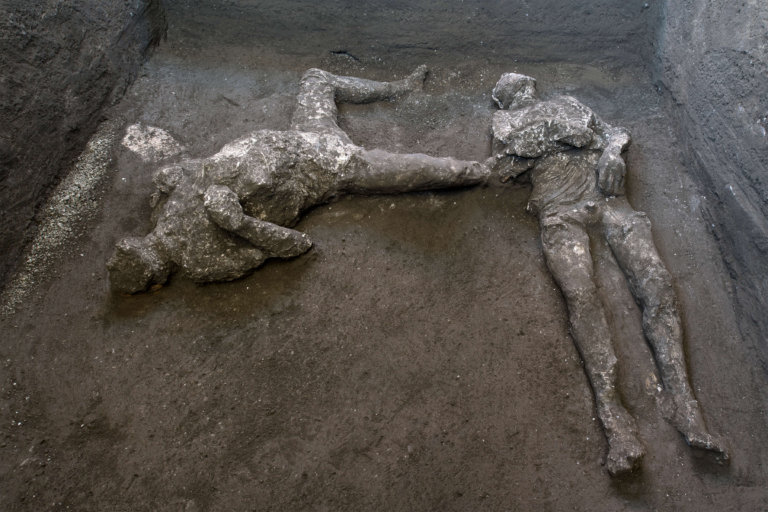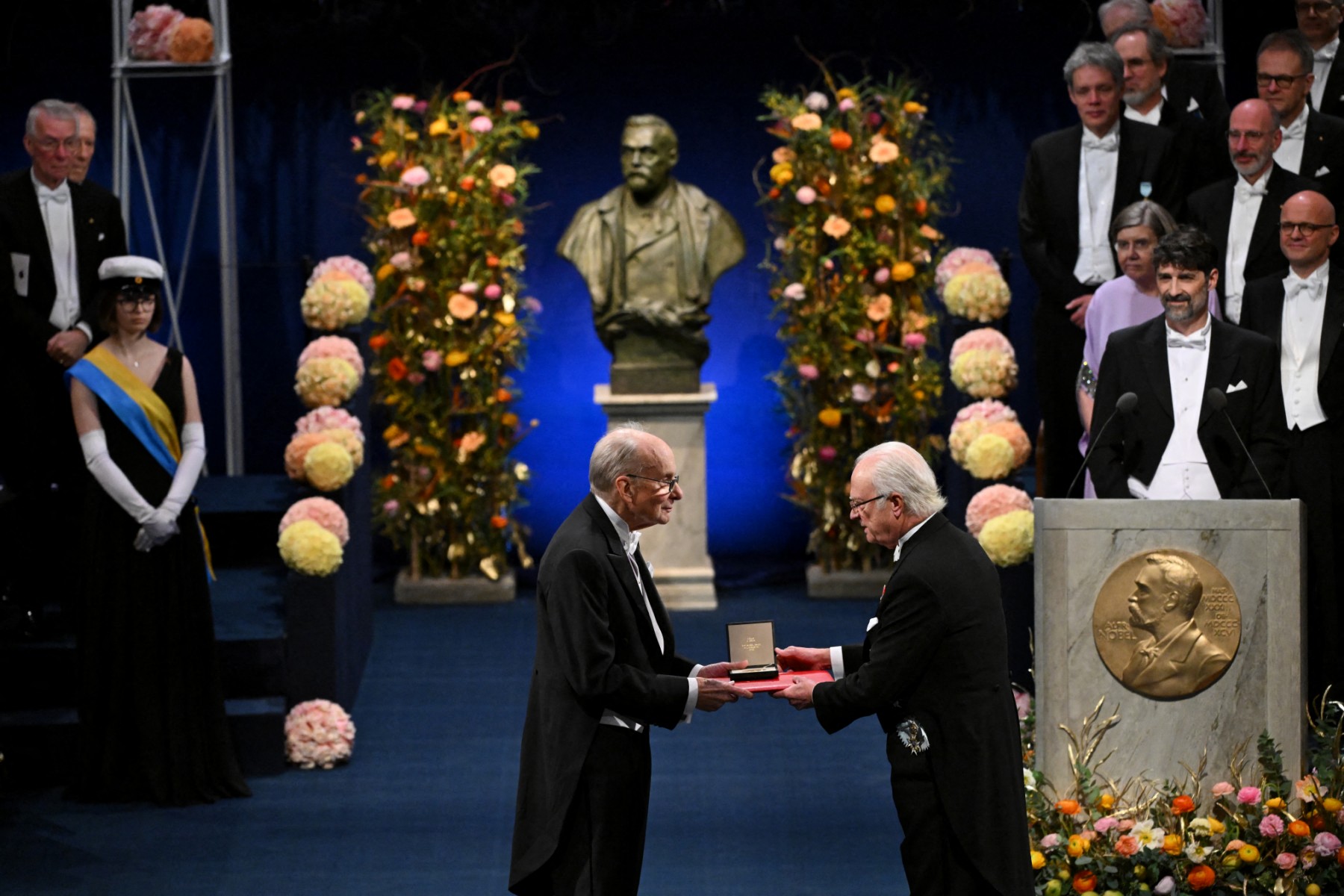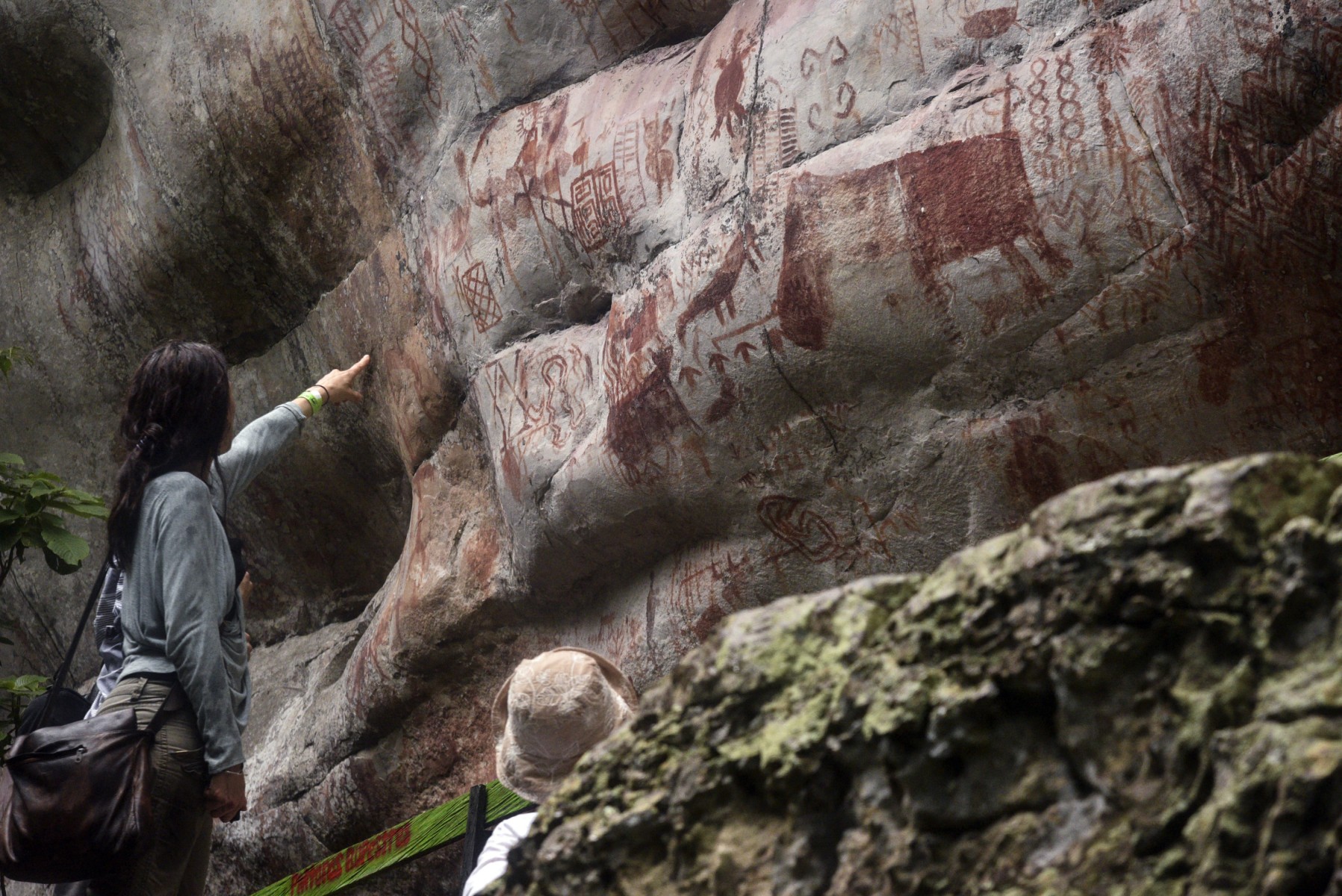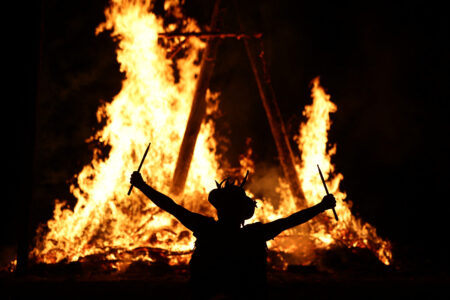
Everyone’s heard of STEM — the widely-used acronym for science, technology, engineering, and mathematics.
Degrees in these fields lead to progressive careers that nearly always guarantee financial success.
Meanwhile, the same certainty can’t be applied to the degrees in humanities, arts, and social sciences; case in point: the world definitely hears more about those in the arts field protesting over unfair working conditions than those in STEM.
Now, first things first, there is contention about whether the social sciences can be parked under the “science” section of “STEM.”

The Nobel Prizes are awarded in five categories: Physics, Chemistry, Physiology or Medicine, Literature, and Peace. A sixth prize for Economic Sciences is also frequently included, as it is also administered by the Nobel Foundation. Source: AFP
Are the social sciences a science?
The social sciences deal with human behaviour in its social and cultural aspects — much different from the natural sciences (such as biology, chemistry, and physics), which examine the physical world.
The natural sciences gather hard data through experiments, while the social sciences collect experiential data through interviews, surveys, and more.
To illustrate this: the former measures a litre of liquid nitrogen, the latter analyses the root causes of bullying by speaking to many perpetrators.
In the US, national organisations like the National Science Foundation, the Department of Homeland Security, and the Department of Labour’s online database for job seekers, O*Net, categorise the social sciences as STEM-based sciences.
Across the pond in the UK, the social sciences are grouped with the humanities and arts instead.
Either way, there is a notion that the social sciences subjects aren’t nearly as awe-inspiring or prestigious as their STEM counterparts.
“There is huge pressure on children to take STEM majors, which are portrayed as tickets to the middle class,” says John Skrentny, professor of sociology at the University of California, San Diego, to Times Higher Education. “If you take a degree in a ‘softer’ subject, teachers will ask what you’re doing.”
That’s not to say that your future will look bleak if you pursue a degree in the social sciences — many other factors come into play, such as the state of the economy, the demands of the market, and more.
Still, the numbers say otherwise.
When researchers asked college completers if they would choose a different field now, 44% of behavioural and social sciences graduates said yes, according to data from the Economic Well-Being of US Households in the 2023 report.
This is followed by 43% of humanities and arts graduates and 43% of life sciences graduates.
The least-regretted fields? Engineering, with only 27% of graduates regretting their decision, followed by computer and information sciences (31%) and health (32%).
But it’s worth noting this: anywhere from 30% to 60 % of STEM graduates, depending on the sector, do not work in a STEM job — a finding revealed in Skrentny’s book, Wasted Education: How We Fail Our Graduates in Science, Technology, Engineering and Math.
So, what does this tell us? Do we pursue our passions that could potentially lead to financial instability, or do we grind for a degree that could make us miserable?
One 18-year-old Redditor seeking advice on the r/findapath forum put it plainly — when asking around, they were told to “study what you are passionate about,” and to that, they say: “What I like [doesn’t pay well]. Also there’s no biggie because I can do something related to that as a hobby. A job is just for getting money unless you are like REALLY passionate about something.”
Many on the forum agree, though each offers their own take on this perspective.
One commenter, who is a doctor, points out: “If you went into medicine purely for money without no overt interest or passion for medicine itself, you would be absolutely miserable. It is a brutal education and harsh culture/system that is truly not for the faint of heart and only those with the passion can survive it without being eaten alive.”
Ultimately, the degree you work for needs to be something that balances passion and prospects.
“Sometimes it’s less about finding something you love and more about finding something you don’t hate,” says another Redditor.
So, with that said, take a look at what you’d really be studying in the social sciences.
The 11 main branches of the social sciences

An anthropologist at the Serrania La Lindosa, a Protected Archaeological Site of Colombia, which has one of the most abundant rock art in the world. Source: AFP.
Anthropology
Anthropology as a part of the social sciences, studies the past and present of humans and societies, looking at patterns of behaviour and cultural meanings. It also looks at how language has an effect on our biological development.
It’s basically studying what makes us human, using a broad approach to process several different aspects of the human experience. They consider the past, and through archaeology, explore how human groups lived thousands of years ago, including what makes up our bodies and genes.
Communication studies
Anyone can talk, but not everyone knows how to communicate and the intricacies behind good and bad communication.
Communication studies, otherwise known as communication science, explores human communication and behaviour, as well as the patterns in interpersonal relationships, social interactions, and communication in different cultures. It also deals with how media plays a part in communication too.

Elon Musk has a Bachelor of Arts in physics and a Bachelor of Science in economics from Wharton School. Maybe that’s the key to being a billionaire. Source: AFP
Economics
Economics is a social science that studies the production, distribution, and consumption of wealth. Why is Elon Musk worth US$267.9 billion? Would you get a Tesla? Why are you able to afford it, but not others? These are the questions an economist seeks to answer.
A neat definition of the field is hard to find. 20th-century economist Lionel Robbin defined economics as “the science which studies human behaviour as a relationship between (given) ends and scarce means which have alternative uses.”
Education
A relatively straightforward subject, education as a social science will have you exploring the processes, institutions, and practices involved in teaching and learning.
Contrary to popular belief, it’s not just about passing on knowledge, but is also a major part of society that influences and is influenced by social, cultural, economic, and political factors.
Obviously, most with an education degree pair it with a specific subject so that they have the knowledge of how to teach and the content that needs to be taught. Otherwise, you could land jobs as an education consultant, student coordinator, or even a career coach.

Geography studies places, spaces and environments. An example is how Antarctica used to be a roaming space for dinosaurs. Source: AFP
Geography
Geography is the study of the diverse environments, places and spaces of the Earth’s surface and how they interact with each other.
This field on our list of social sciences chases answers to questions like why things are the way they are, and where they are. It studies the characteristics of places, in particular their natural environments and its inhabitants, and the connection between the two.
History
History is one of the social sciences that observes the chronological record of events based on a critical examination of source materials, usually explaining their causes. History studies the change over time, covering all branches of human society: political, social, economic, scientific, technological, medical, cultural, and so forth.
If you have a passion for details — like comparing “Minecraft“ to World War II, or finding out what in “Game of Thrones” is factually incorrect — this could be for you. Were there really dragons 12,000 years BC?
Law
Law as a social science studies the relationships between individuals within society and the interaction between legal systems and other social systems.
In certain situations or teachings, however, law students are told not to equate legal ethics with morality. Instead, they are taught legal positivism, also known as “pure law.” This is the approach of teaching law without the “baggage” of the social sciences: without history, politics, philosophy, morality or ethics.
Linguistics
Linguistics is the scientific study of language. It is concerned with the historical development of languages in written texts and in the context of literature and culture.
The linguist gives priority to spoken over written languages and the problems that deal with analysing them. You could be a lexicographer — a person who compiles dictionaries, or if that’s not exciting enough, turn it up a notch and look into forensic linguistics who can get paid up to US$$85,177 per year.
Political science
Geography is defined by location as an environmental factor; history relies on leftover relics for data, sociology is dependent on human behaviour and conditioning, and political science focuses on power.
Political science studies the dynamics of a government system and political activities, thoughts and behaviours through methods of analysis. It mainly examines the state and its institutions.
The ability of how one political actor gets another political actor to do what it wants at all levels — international, national and local. Think of the “Trump Effect” on international students in the US when he became president in 2017. It has led to less diverse student bodies, which in turn had a ripple effect on global higher education as well as the makeup of American society.

One of the most famous branches of social science sis none other than psychology. Source: AFP
Psychology
A rather famous branch of the social sciences, psychology is defined as the studies of mental states and processes and behaviour in humans and other animals.
Psychology terms are thrown around often, such as Pavlov’s dog theory for classical conditioning or Maslow’s hierarchy of needs, a theory of psychology explaining human motivation based on the pursuit of different levels of needs.
There are various career paths you can take with a psychology degree beyond being a psychologist, psychiatrist, or counsellor. This includes being a human resources officer, a market researcher, a policy officer, and more.
Sociology
Sociologists study human interactions, and the dynamics that preserve and change them. This is through observing the constituent parts of societies like population, gender, racial or age groups.
Social life regulates human behaviour because we largely depend on social institutions and organisations to inform our decisions and actions — something sociologists are constantly observing and studying.
You know the mother of dragons? Well, sociology is the “queen of all sciences,” according to French philosopher Auguste Comte. The founder of sociology and of positivism — a theory that knowledge is derived from experience and excludes a priori or metaphysical speculations — dubbed it so as it would be able to embrace and hold together the rest of the sciences, just like a keystone.
Disclaimer: This article was last updated on September 30, 2024.










